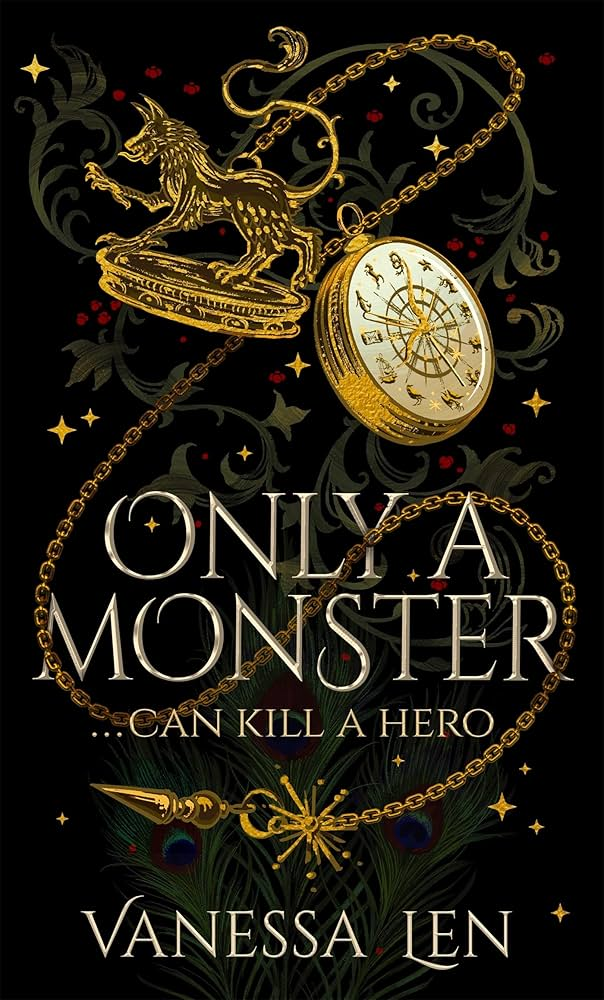No Heroes, No Villains
- thebookclubknc
- Oct 27, 2025
- 2 min read
By Prisha Nanda

Edited by Nandana
Only A Monster by Vanessa Len begins like many stereotypical young adult fantasies: the protagonist uncovers a family secret, discovers her own hidden powers, suffers a tragedy and is forced to go on the run while searching for the truth (and, of course, there’s a love triangle).
But that’s where these similarities end. Most YA fantasies give readers a choice: root for the hero or the villain. The good and innocent, or the corrupted and supposedly “morally grey.”
This book, however, doesn’t exactly give you a choice. Instead, Vanessa Len effectively dismantles the traditional hero-villain narrative by posing a single, unsettling question: What if the story you’re in casts you as the villain, no matter what you choose?
At the beginning of the book, Joan’s life unravels when she learns the truth: she comes from a family of monsters who steal time from humans to travel through time itself—not metaphorically, but literally draining months and years of a human’s life. When Nick, the hero destined to destroy monsters like her, kills her entire family, Joan has no option but to flee across time with Aaron Oliver, heir of a rival monster family.
But every attempt Joan makes to save her and her family’s lives costs someone else their future. This moral dilemma is what drives the plot into complete, utter moral ambiguity. Because using the power that is an inherent part of her, that she was born to use, but never chose for herself, means taking lives.
This book refuses to offer moral comfort. There is no righteous path, and the monsters are not misunderstood heroes. There are only choices layered in consequences, a hero on a high horse, and beings whose survival, which is their right, is fundamentally tied to harm.
For a YA fantasy, this trilogy poses startlingly profound questions: Can survival justify causing harm? And is morality determined by intention, action or outcome?
The author creates a story that keeps readers oscillating between empathy and horror. And we can’t help it either, because the emotional impact lies in Joan’s humanity. She is neither glorified nor excused; rather, she is burdened. Her fear, grief, longing and own moral guilt make her journey tragic and compelling.
Each word, sentence, and page in Only A Monster feels like death by a thousand cuts. By the end, you’re left feeling raw, like an open wound, and wondering whether survival itself is the greatest tragedy.






Comments